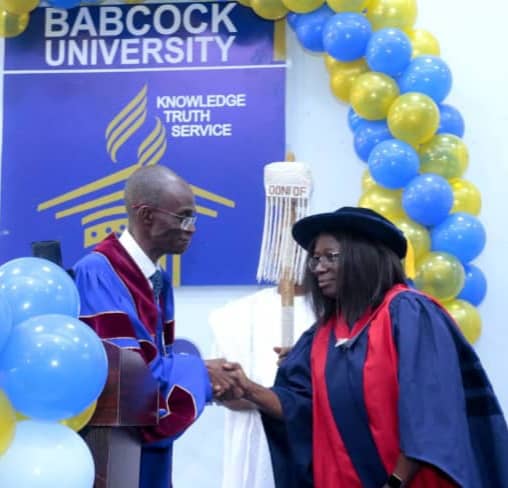A Professor of Commercial and Intellectual Property Law at Babcock University, Prof. Dorcas Odunaike, has warned that Nigeria is losing billions of naira due to weak copyright protection and inadequate legal safeguards for performers in the country’s booming creative industry.
Odunaike, who spoke during the university’s 56th inaugural lecture titled “Scar in Copyright Protection: Harnessing the Potential of Performers’ Rights in Nigeria,” held at Ilishan-Remo, Ogun State, urged the National Assembly to expand the 2022 Copyright Act to address emerging threats from digital piracy, artificial intelligence, and other new technologies.
She lamented that despite the creative industry’s estimated N154 billion contribution to Nigeria’s Gross Domestic Product (GDP), performers — including actors, musicians, and content creators — remain poorly protected under the existing law.
“Nigeria is a developing nation faced with challenges that inhibit effective management of performances — identification and monitoring of uses, piracy, bootlegging, and digital exploitation of music and video,” she said.
The legal expert noted that technological innovations such as deepfake tools — which allow digital manipulation of voices and images — have worsened the vulnerabilities faced by performers, exposing them to reputational and financial harm.
She stressed that although Sections 63 to 73 of the 2022 Copyright Act introduced some improvements, performers’ rights are still treated as secondary to authors’ rights, leaving many at the mercy of digital pirates and unregulated platforms.
According to her, the proliferation of digital platforms and AI-driven content has created new layers of infringement challenges, with machines producing imitations that cannot be held accountable for misuse or copyright violations.
Odunaike, who described this legal gap as a “scar” in performers’ rights protection, said the loopholes have not only deprived creative workers of due royalties but also cost the nation potential earnings from digital performance revenues available in other countries.
To bridge the gap, she called for a comprehensive update of the Copyright Act to expressly cover digital and AI-based performances, introduce clearer definitions of performers’ rights, and strengthen enforcement mechanisms.
She also advocated for greater public awareness among performers on intellectual property rights and an independent annual review of the activities of licensing societies to ensure transparency and accountability.
“Including digital performances in Section 63(2) of the Act will help Nigeria recover revenues lost through digital royalties and enhance accountability in the sector,” she added.
Odunaike maintained that a stronger and technology-responsive copyright framework would not only safeguard performers’ livelihoods but also boost Nigeria’s creative economy and its global competitiveness.
Do you want to share a story with us? Do you want to advertise with us? Do you need publicity for a product, service, or event? Contact us on WhatsApp +2348183319097 Email: platformtimes@gmail.com
We are committed to impactful investigative journalism for human interest and social justice. Your donation will help us tell more stories. Kindly donate any amount HERE




